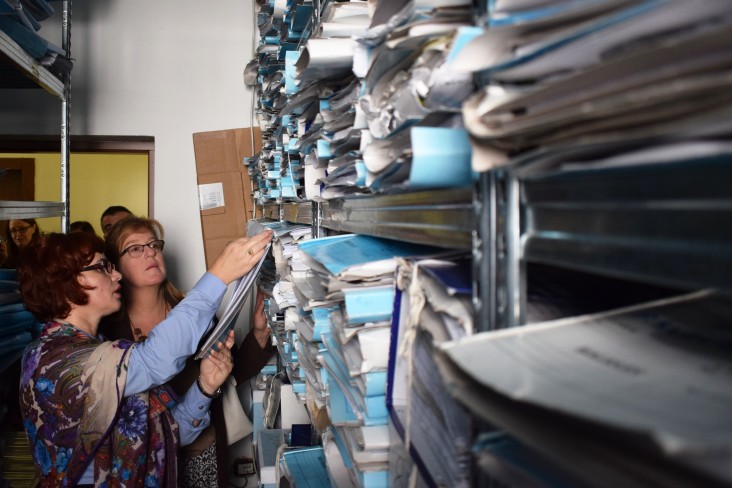Speeches Shim

TIRANA, ALBANIA To improve the efficiency, transparency, and accountability of Albania’s courts, USAID Country Representative Mikaela Meredith, Chief Judge Enekedi Hajro of the District Court of Tirana, and Leonard Busho, the Director of Albania’s State Archive for the Judicial System signed a tripartite Memorandum of Understanding (MOU) on October 4 to begin a year-long effort with the USAID Justice for All Project to establish new archiving and management of the court systems’ case files.
The archival effort will ensure better storage conditions for the court files, reduce the response time required to fill customer’s requests for copies of court records, and allow the rooms to be converted back to courtrooms, including one for handling juvenile cases. Over the next year, the Justice for All Project will also help the court system implement best practices to maintain case file records and support the court’s management of human resources and technical equipment.
The MOU signing followed a tour of several courtrooms, many filled to the ceiling with paper case files. Currently, the Tirana District Court generates more than 38,000 new case files each year and it faces a serious shortage of appropriate storage space. The court has been forced to store records in a variety of places and ways, including converting a Digital Audio Recording (DAR) equipped courtroom to a records storage room.
About the Justice for All Project
In 2016, USAID began its Justice for All Project, a five year project designed to strengthen the effectiveness and transparency of the courts in Albania. To improve Albanian courts’ performance, the project will provide assistance to increase court efficiency, transparency, and accountability. Ultimately, the project aims to increase citizens’ trust in the judiciary.
The project supports ongoing judicial reforms and improved judicial leadership through technical assistance in planning and coordinating the many actions necessary for the establishment of key judicial bodies to facilitate the accurate implementation of many procedures established by the new laws that govern the reforms.

Comment
Make a general inquiry or suggest an improvement.